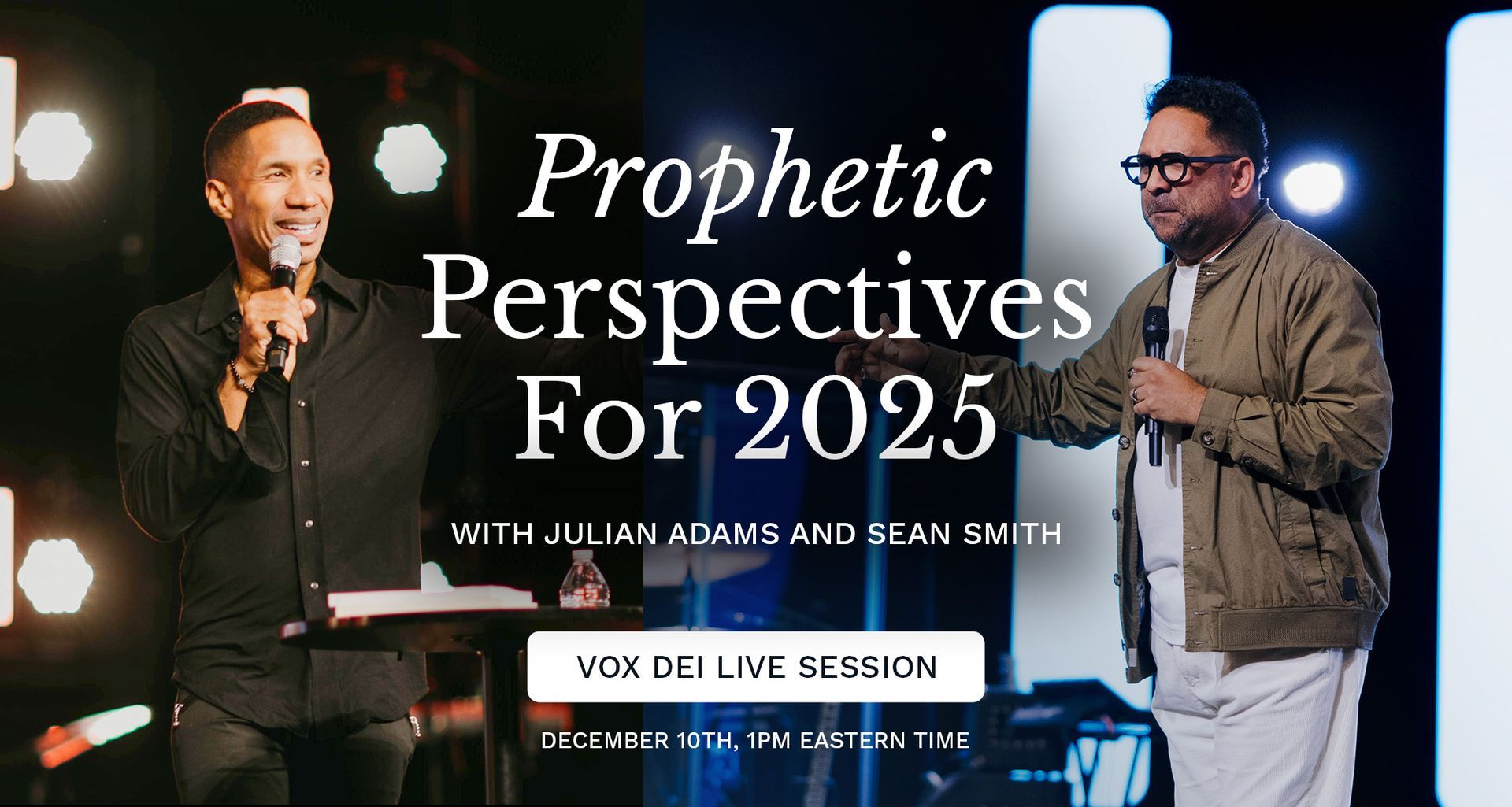Why You Should Stop Offending People
Julian Adams • December 5, 2018

Sometimes the Gospel is offensive, but it’s crucial that we don’t make it offensive simply for offense sake. I’ve discovered that it is wise to take people on a journey of discovering truth, and our language plays an important role in that journey. Want to see more from us? Subscribe to Frequentsee on YouTube!
– TRANSCRIPT
I am convinced that being offensive for offensive sake is not very Christlike at all and one of the things that I see in particularly in prophetic movements is the sense of the right to offend people without taking them on a journey, the right to offend people without helping people move from point A to point B, and what that produces is an unwise sense of offense that doesn’t actually lead people into a place of freedom. And so, one of the aims that I’ve made in terms of how I do prophecy, how I deliver my prophetic words, how I do anything in the world of the supernatural and the prophetic is to aim for a revelation of God’s heart, to aim for a revelation of who Jesus is rather than simply wanting to offend people.
Now, the truth is that sometimes truth, particularly found in scripture and lived out is offensive. Sometimes it means that we have to say some things that goes against the grain, that aren’t culturally acceptable, that sometimes even is politically incorrect, and that is part of the deal when it comes to demonstrating who God is. God is never going to fit into our box. God’s never going to fit into the way that we want to do things, and often, He will offend our mind to reveal what’s in our heart. But I’ve learned this one thing, that wisdom means I want to take people onto and into a journey of truth so that rather than being offended initially, they learn to come into an encounter with God through his love. I find it very fascinating that very often in my parenting style, I want my children to learn through an expression of my love and favor rather than having to create discipline context or difficult context or offensive context, for a lack of better word. I want them to learn through favor and love and that’s God’s preferred way of dealing us.
And I want to encourage you, when you’re bringing your prophetic words, when you’re demonstrating the prophetic or the supernatural, think about how you’re delivering things, think about how you’re packaging that so that you can lead people who maybe have not ever been initiated into the charismatic world or the world of the supernatural or the prophetic or those who maybe even have a biased or an offense already, won’t you be wise in how you communicate, won’t don’t you lead them gently, like a shepherd would lead some sheep, gently, won’t you speak to them in kindness, won’t you use words that make sense, won’t you avoid religious talk so that actually it is easy for people to enter in to the reality of the supernatural world.
I love what the Bible says in Matthew. It says that Jesus speaking to the pharisees that they would go around the whole world to see one convert and then once that convert has come in, they put all these rules and regulations so that they do not get to enter into the Kingdom, neither the pharisees nor the convert that they went and sought after. I want to be one who’s able to make it easy for people to enter the Kingdom, and the fullness of the Kingdom, the supernatural reality of the Kingdom, and the way that we do that most often is by using words that connect to heart, using gentle phrases that actually liberate people rather than bind people. So, think about how you’re speaking, thinking about how you communicate, think about how you lead people because we never want to be offensive for offensive sake, and part of that requires wisdom in how we walk with people so that they fully come into a great, great encounter with a kind, good God.

If you want to grow in the prophetic, it doesn’t begin with what you say. It begins with what you see. The prophetic is rooted in perception. Not just natural insight, but spiritual awareness—what Scripture calls “the eyes of your heart.” Paul prayed that the church in Ephesus would have their hearts enlightened so they could truly see what God was doing. “I pray that the eyes of your heart may be enlightened in order that you may know the hope to which He has called you…” (Ephesians 1:18) God isn’t distant or withholding. But if we’re going to hear Him clearly, we have to see differently. We need Heaven’s perspective. And that means learning to quiet the noise, tune into His voice, and let Him train our inner vision. You don’t need to wait for a dramatic vision or audible voice. Often, God speaks through a nudge. A mental picture. A scripture that lingers. A sense of burden or joy that feels holy. These are the first signs that your spiritual eyesight is awakening. But it takes time. It takes attention. It takes trust. Just like physical muscles grow with use, your spiritual senses grow as you spend time with Him—not just talking, but listening. Not just asking for answers, but asking for His perspective. You were never meant to live according to what the world says is true. You were meant to live by every word that flows from the mouth of God. A Prayer for This Week: “Lord, open the eyes of my heart. Teach me to see what You see—not just in others, but in myself, in my circumstances, in the world around me. Give me clarity and confidence to trust Your perspective more than my own. Amen.” This week, pay attention to what you notice. The way you see is often the way He speaks.

We are living in a world of dramatic change. The relentless pace of development often leaves us breathless and exhausted. The demand for innovative ways of communicating, inventing, and staying ahead of cultural trends can feel daunting and demoralizing. It can push us into a space where we find ourselves trying to copy rather than be authentic, to imitate rather than create. This pressure can lead us to believe that we need to be more creative, and that our individual stories do not matter. But nothing could be further from the truth. Your story, no matter how small, matters and is powerful. One of the remarkable aspects of ancient manuscripts, like the Bible, is that they tell the stories of individuals whose lives may seem small and insignificant. Yet, God chose to make their lives a memorial of what He could do with a life that the world deems insignificant. The incredible power of the gospel is that it changes lives one at a time. God is as interested in the individual story as He is in redeeming the cosmos. The aim of the gospel is not just dealing with personal sin; it is about restoring individuals to a relationship with a kind Father. In his book Mere Christianity, C.S. Lewis beautifully said, "The Son of God became a man to enable men to become sons of God." Justification addresses our standing before God, but our adoption invites us into a relationship with the Father. It allows us to partake of who He is and to live in a place of deep joy from who He is. Romans 3:23 reminds us that "all have sinned and fall short of the glory of God." Many of us forget that the work of salvation has turned this verse around. Through Jesus, we have been restored to the glory of God. One description of the word "glory" refers to the divine quality, the unspoken manifestation of God, and splendor. It is the revelation of God's intrinsic worth and beauty. Do you see that? We have been restored to His divine quality, splendor, and beauty. In a world where it can be easy to feel like just another face in the crowd, remember that your story is significant. Your experiences, your journey, and your voice matter. Embrace the unique narrative God has given you and let it shine. You are not just a spectator; you are a vital participant in God's grand story. Your authenticity, creativity, and individuality are valuable. As you navigate the rapid changes of our world, hold on to the truth that your story has power and purpose. God sees you, knows you, and has a plan for your life that is uniquely yours. Let us celebrate the beauty and significance of each individual story, knowing that together, we contribute to a tapestry of divine splendor and glory.



